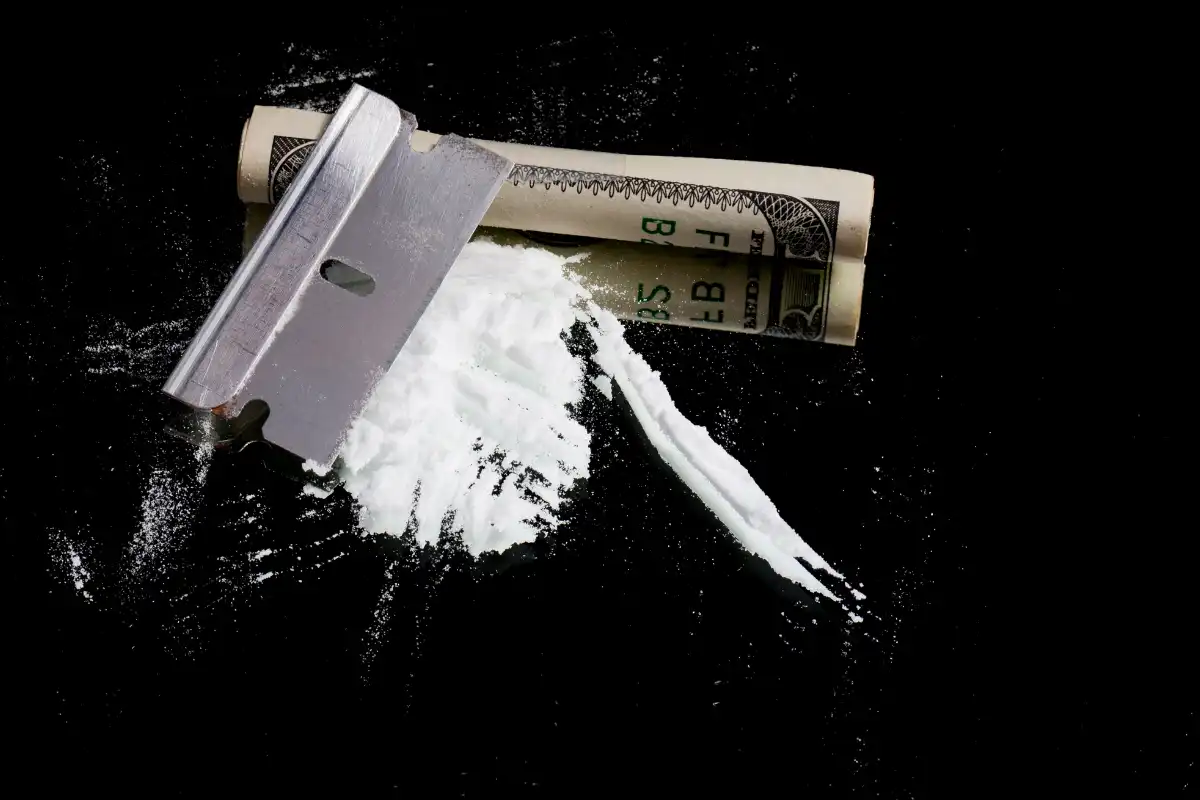
Over the last few years, cocaine use has been on the rise again in the United States and beyond. After peaking in popularity during the 1980s and seeing a decline through the late 1990s and early 2000s, cocaine is now experiencing a troubling resurgence. From celebrity headlines to rising statistics in urban and suburban communities alike, cocaine use is making a comeback—and with it, devastating consequences.
At West Coast Detox, we see firsthand how dangerous and addictive cocaine can be. While it may have a reputation as a “party drug” or a “glamorous high,” the truth is that cocaine poses serious risks to mental and physical health, relationships, and overall quality of life. Understanding why cocaine is becoming popular again can help us recognize the risks and encourage those struggling to seek help through specialized detox and treatment services.
In this article, we’ll explore the factors driving the resurgence of cocaine, its risks, and the importance of seeking professional detox and treatment.
A Historical Look at Cocaine Use
To understand why cocaine is popular again, it’s important to revisit its history. Cocaine was first extracted from coca leaves in the mid-19th century and quickly gained attention as a stimulant with potential medical uses. In the early 1900s, it was marketed in tonics, elixirs, and even the original formula of Coca-Cola.
By the 1970s and 1980s, cocaine became the drug of choice for Wall Street elites, Hollywood celebrities, and partygoers across America. The media often portrayed it as a glamorous indulgence, while its addictive nature and deadly consequences were overlooked. Crack cocaine, a cheaper and more addictive form, fueled the drug epidemic of the late 1980s and early 1990s, especially in low-income urban areas.
As public awareness of cocaine’s dangers grew, use began to decline in the 1990s and early 2000s. For a time, opioids became the primary focus of the nation’s substance abuse crisis. But now, cocaine is resurging—often intertwined with other drug use.
Why is Cocaine Becoming Popular Again?
There are several reasons why cocaine use is climbing back into the spotlight:
1. The Shift in Drug Culture
Drug trends tend to ebb and flow with cultural influences. Just as opioids dominated the early 2000s and cannabis became mainstream in the 2010s, cocaine is now enjoying a “revival” in nightlife and entertainment circles. Young adults who did not live through the crack epidemic of the 1980s often view cocaine as a new or edgy experience, without fully understanding its risks.
2. The Influence of Music, Media, and Celebrities
Cocaine references in popular music and media have increased significantly over the last decade. Songs, movies, and television shows often portray cocaine use as fun, rebellious, or glamorous. This type of messaging normalizes cocaine and diminishes the stigma that once kept people wary.
3. Accessibility and Price
Cocaine availability has expanded due to increased production in South America and global trafficking networks. In many areas, cocaine is cheaper now than it was 20 years ago, making it accessible not only to wealthy elites but also to young adults, college students, and working-class communities.
4. The “Functional Drug” Myth
Some people mistakenly believe cocaine is a “functional” drug because it acts as a stimulant. Users think it helps them stay awake, perform better at work, or maintain energy at parties. This myth encourages casual use, which can quickly spiral into dependence.
5. Polysubstance Use
Cocaine is increasingly used alongside other substances, especially alcohol and opioids. Many individuals mix cocaine with alcohol to “balance out” the effects, or with opioids (a dangerous combination sometimes called a “speedball”) to achieve an intense high. The rise of fentanyl contamination has made this trend deadly. Today, many cocaine-related overdoses involve fentanyl rather than cocaine alone.
The Dangers of Cocaine Use
While some people see cocaine as glamorous, the risks are anything but. Cocaine affects nearly every system in the body and can cause both immediate and long-term damage.
- Cardiovascular Risks: Cocaine increases heart rate and blood pressure, which can trigger heart attacks, strokes, or sudden cardiac arrest—even in young, healthy individuals.
- Neurological Effects: Cocaine disrupts brain chemistry, leading to mood swings, anxiety, paranoia, and hallucinations. Over time, it damages the brain’s dopamine system, which is linked to motivation and pleasure.
- Addiction: Cocaine is highly addictive, and tolerance builds quickly. What begins as occasional use can rapidly escalate into compulsive patterns that are difficult to break without professional help.
- Mental Health Issues: Anxiety, depression, panic attacks, and aggression often accompany cocaine use. Many individuals with pre-existing mental health conditions see their symptoms worsen.
- Overdose Risks: Cocaine overdoses can cause seizures, respiratory failure, or sudden death. The risk is even greater now with fentanyl-laced cocaine flooding the drug supply.

Get Your Questions Answered
Reach out today to get the answers you need about drug and alcohol detox. Our compassionate team is here to guide you through every step of the process and help you take the first step toward recovery.

Why Young Adults are Driving the Resurgence
One of the most concerning aspects of cocaine’s popularity is its appeal among young adults. College campuses, nightclubs, and music festivals are common environments where cocaine circulates.
Social pressures, curiosity, and the desire to “fit in” often drive experimentation. Because cocaine is associated with high energy, confidence, and social interaction, many young people are drawn to it for short-term benefits—without realizing the long-term consequences.
Social media also plays a role. Posts glamorizing drug use create a sense of normalcy, making dangerous behaviors seem less risky.
The Overlap of Cocaine and Fentanyl
Perhaps the most alarming development in recent years is the intersection of cocaine use and the fentanyl crisis. Fentanyl, a synthetic opioid 50 to 100 times more potent than morphine, is increasingly being mixed into cocaine supplies.
Some users unknowingly ingest fentanyl-laced cocaine, leading to a sharp rise in overdose deaths. Others deliberately combine cocaine and opioids for a “speedball” effect, not realizing how lethal the mixture can be.
This trend underscores why cocaine use today is more dangerous than ever before. What might seem like a “safe” stimulant is now a high-risk gamble.
Cocaine Detox and Treatment
Because cocaine is both physically and psychologically addictive, stopping use on one’s own can be extremely difficult. At West Coast Detox, we specialize in helping individuals safely and effectively begin their recovery journey from cocaine addiction.
Cocaine Detox
Cocaine withdrawal symptoms may not be as physically dangerous as alcohol or opioid withdrawal, but they are intensely uncomfortable and emotionally destabilizing. Symptoms can include:
- Extreme fatigue and sleep disturbances
- Intense cravings
- Anxiety, irritability, or agitation
- Depression and suicidal thoughts
- Difficulty concentrating
These symptoms can last for days or weeks, and without professional support, many individuals relapse just to stop the discomfort. At West Coast Detox, our medical team provides a safe and structured environment to ease withdrawal symptoms, reduce cravings, and monitor mental health closely.
Cocaine Treatment
Detox is only the first step. Long-term recovery requires comprehensive treatment that addresses the underlying causes of addiction. At West Coast Detox, our cocaine treatment programs include:
- Individual Therapy: Cognitive-behavioral therapy (CBT) and other approaches help clients understand triggers, develop coping strategies, and change harmful thought patterns.
- Group Therapy: Sharing experiences with peers provides accountability, encouragement, and a sense of community.
- Dual Diagnosis Care: Many people with cocaine addiction also struggle with mental health disorders such as anxiety or depression. Our integrated care addresses both issues simultaneously.
- Holistic Approaches: Wellness activities like mindfulness, yoga, and exercise support emotional healing and long-term balance.
- Aftercare Planning: We help clients transition into ongoing support systems, such as outpatient therapy or sober living, to reduce relapse risk.
Our team at West Coast Detox understands the unique challenges of cocaine addiction and provides compassionate, specialized care tailored to each individual’s needs.
Why Professional Help Matters
Some people believe they can quit cocaine on their own, but the reality is that professional treatment dramatically increases the chances of long-term recovery. The cycle of cocaine addiction—euphoria, crash, craving, and relapse—is extremely difficult to break without medical and therapeutic support.
Professional detox ensures safety during withdrawal, while structured treatment addresses the psychological roots of addiction. With the right support system, individuals not only stop using but also build healthier, more fulfilling lives.
Breaking the Stigma Around Cocaine
Another factor fueling cocaine’s popularity is the lack of stigma compared to other drugs. While opioids are widely acknowledged as deadly and methamphetamine is associated with extreme consequences, cocaine retains an image of glamour or acceptability in some circles.
Breaking this stigma is crucial. Cocaine is not safe, trendy, or glamorous—it is addictive and potentially lethal. Public education, open conversations, and visible recovery success stories can help shift the narrative.

How Families and Friends Can Help
If someone you care about is struggling with cocaine use, it can be overwhelming to know how to help. Here are a few steps you can take:
- Learn About Cocaine Addiction: Understanding the risks and signs can help you recognize when use has become problematic.
- Approach With Compassion: Avoid judgment or blame. Instead, express concern and encourage seeking help.
- Encourage Professional Treatment: Detox and treatment programs like those at West Coast Detox offer the best chance for long-term recovery.
- Set Healthy Boundaries: Supporting someone does not mean enabling harmful behavior. Boundaries protect both you and your loved one.
Seek Support for Yourself: Family therapy and support groups can provide tools for navigating the challenges of a loved one’s addiction.
Conclusion: Facing the Cocaine Comeback
Cocaine may be gaining popularity again, but that doesn’t mean it’s safe—or that its devastating effects have changed. The rise of fentanyl-laced cocaine and increasing rates of addiction make this drug more dangerous than ever before.
At West Coast Detox, we are committed to helping individuals break free from the cycle of cocaine addiction through compassionate detox and specialized treatment services. If you or someone you love is struggling with cocaine use, know that recovery is possible. With the right support, you can reclaim your health, your future, and your life.























